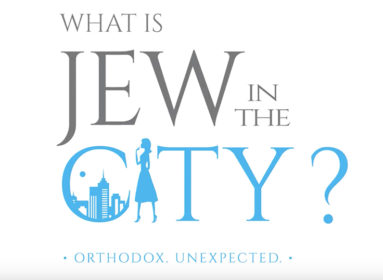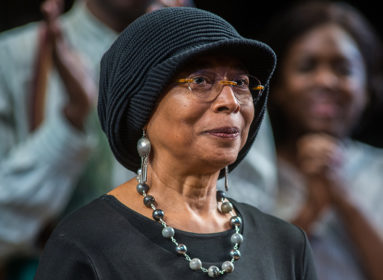
Author of Beautiful Days, Holy Days: The Majesty and Profundity of the Jewish Holidays
By Cindy Mindell
West Hartford native, Rabbi Cary A. (Avraham Peretz) Friedman, is a police trainer specializing in stress management and ethical decision-making. He is associate director of the Law Enforcement Survival Institute and co-founder of the Centers for Tactical Resilience and Ethical Policing, both in Littleton, Colo. A consultant to the Behavioral Science Unit of the FBI, he has spoken at the FBI Academy and addresses law enforcement audiences across the U.S.
Friedman began his professional career as an electrical engineer, and worked at Coltec Industries in West Hartford. He and his wife, Marsha (also a West Hartford native), met as students at the Bess and Paul Sigel Hebrew Academy in Bloomfield. They are the parents of six children.
Inspired by teaching Torah, Friedman earned his rabbinic ordination from Yeshiva University’s Rabbi Isaac Elchanan Theological Seminary. After teaching in Israel, he moved with his family to North Carolina, where he was executive director of the Duke University Jewish Learning Experience and a chaplain at the federal correctional institution in Butner, N.C. He later served as spiritual leader of Congregation Anshe Chesed in Linden, N.J. (now based in Passaic) and as associate editor of the Orthodox Union Press.
The author of six books and numerous articles, Friedman recently spoke with the Ledger about his new book, Beautiful Days, Holy Days: The Majesty and Profundity of the Jewish Holidays.
Q: Why did you write Beautiful Days, Holy Days?
A: While I was sitting shiva for my father, z”l, a prominent rabbi suggested that I publish something on my father’s yahrtzeit as a zechut [merit] for his neshama [soul]. I spent a lot of time thinking about what would be an appropriate tribute to my father. I hit on this one: a collection of essays on the Jewish holidays. My reasoning was that I had spent my rabbinic career involved in various forms of outreach, introducing people to fundamental Torah concepts and practices, and challenging them to revisit and reconsider what they think they know about Torah-true Judaism. I have used the holidays as a vehicle for that teaching, because they’re well known and people think they “get” the significance of the holidays. These essays encapsulate much of my rabbinic teaching career, a career my dad encouraged. My father was a master teacher; I’ve tried to emulate his extraordinary teaching greatness, and this book is the fruit of my teaching efforts. I don’t write just to write in general; I usually try to identify a gaping hole in the Torah literature or the general literature.
Q: Why do Diaspora Jews still observe two days of some holidays while Jews in Israel observe only one?
A: Originally, the calendar was set each month by the appearance of the new moon. Based on the testimony of witnesses, the Sanhedrin would declare that it was a new month. That is the first mitzvah given to the Jewish people. When they’re in Egypt, on Rosh Chodesh Nissan, God says to Moshe, “This is the first mitzvah I’m giving you: the Jewish people will declare, on the basis of testimony, the new month every month.” The Talmud tells us the length of the lunar month. It says that we have a tradition that God said to Moshe at Mount Sinai that the length of the lunar month is… and it gives us a number. Over the last 40 years, NASA, with its satellites and lasers and things like that, has measured the length of the lunar month, and out six decimal places, it’s the exact same number.
So the Sanhedrin would declare the new month and send out messengers throughout Israel and outside to the lands beyond. The communities within Israel would be notified most of the time; the information would get to them before the holidays. For example, Pesach and Sukkot start on the 15th of their respective months, so the riders could get everywhere in the land of Israel in time. Those holidays are the classic cases of the second day being needed outside the land of Israel but not inside the land of Israel.
Shavuot is 50 days after the first day of Pesach, so by that time, the messengers had 65 days and could reach everywhere in the inhabited world where the Jewish people lived. So why is there a second day of Shavuot outside the land of Israel? In fact, the Talmud points out that the Torah was given on the seventh day of Sivan. The holiday of Shavuot is celebrated in the land of Israel on the sixth day of Sivan and the next day, people are back at work. So, we’re the ones who are celebrating the holiday correctly. This is discussed at great length in the mystical works. The Zohar spends a lot of time talking about the fact that the second day of each holiday actually contains the theme of the holiday. On Shavuot, the second day is the day that celebrates both the giving of the Torah and also the fact that the vehicle for its dissemination was galut, paradoxically.
Two thousand years ago, in anticipation of going into exile, the Jewish people, under the leadership of Rabbi Hillel HaNasi, worked out the Jewish calendar for the next several thousand years. The Beit Din of that era went through the process of declaring each of the subsequent months individually. So why don’t we go back to the system of one day for each holiday everywhere? There are a couple of different layers to the answer that the Talmud gives: outside the land of Israel, our existence is a tenuous one. The second day is a statement of uncertainty; it’s a reflection of the fact that our lives in the galut are not ours and are not ours to control. The Talmud says that you never know, in the course of Jewish history, when there are despots and tyrants and oppressors who are going to take away our control of the calendar or access to the calendar.
Q: Though it isn’t strictly a holiday, you include a listing for Parshat Zachor (Torah portion of “Remembrance”), which falls this year on March 19. Why?
A: Parshat Zachor is a perfect example of how the Torah looks at all of life. The portion is about remembering Amalek’s behavior towards us. The people of Amalek are the ultimate bad guys; they exist as a nation simply to negate what we represent. The Jewish people are a culture of life; we celebrate and affirm life, we contribute to it – everything that can be done to realize the potential that human beings possess and to recognize the sanctity, importance, and possibility of life, that’s what we’re all about. The culture that we’ve created, the rituals, mitzvot, and Torah study – everything is about life. And Amalek is the negation of that. They’re the ultimate culture of death and meaninglessness of everything. Anything we stand for, they stand in antithesis to that.
The Rambam says that anyone is an Amaleki if they rise up and stand in opposition to the Jewish people and what the Jewish people represent. But the Torah tells us time and time again that, when we look at the world, our job isn’t to say what they did wrong to us, but to see what we did wrong that we put ourselves into such a situation that the consequences of the world come back and hammer us.
So the lesson of Parshat Zachor and all of the exchange with Amalek is that they’re wicked, but we bear some responsibility. The Torah tells us that Timna approaches Avraham Avinu (the Patriarch Abraham) and says, “I would like to be a member of the Jewish people; I would like to marry into your family. You’re an illustrious, noble people and I see that God is with you.” It was decided she was not worthy to join. She nursed a tremendous resentment at having been rejected and she brought up her child and that whole line to exist to express its rage at being rejected by the Jewish people.
So, the Talmud looks at Adolph Hitler-type people, and it says, “As wicked as these people are, what responsibility do we bear in what happened; what did we do wrong?” That’s an amazing thing that only the most spiritual of nations could do: spend its whole life beating itself up and judging itself by an incredibly harsh measuring stick, to say, “We bear some responsibility and we have to do better.” The theme of Parshat Zachor and the whole episode is to remind us that, every time we interact with Amalek, we always have to turn inward and see what role we played in causing this problem.
If the Jewish people pursues its God-given destiny – our job is to be a light unto the nations, a kingdom of priests living lives of holiness, which is demanding and exhausting, but that’s the responsibility and privilege we were given and that’s what we’re supposed to do – then we exist outside of nature and are impervious to the ravages of time and natural forces of decay and destruction. Conversely, when we shirk that awesome responsibility – when we aspire to live like “all the other nations” – the universe is swift and unrelenting in bringing those forces of decay and destruction to bear on us, as has happened several terrible, painful, heartbreaking times throughout 3,700 years of Jewish history.
But we can do it. We’re descended from heroes and heroines of the human spirit and we possess the spiritual strength to be “a kingdom of priests and a holy nation.”









 Southern New England Jewish Ledger
Southern New England Jewish Ledger













